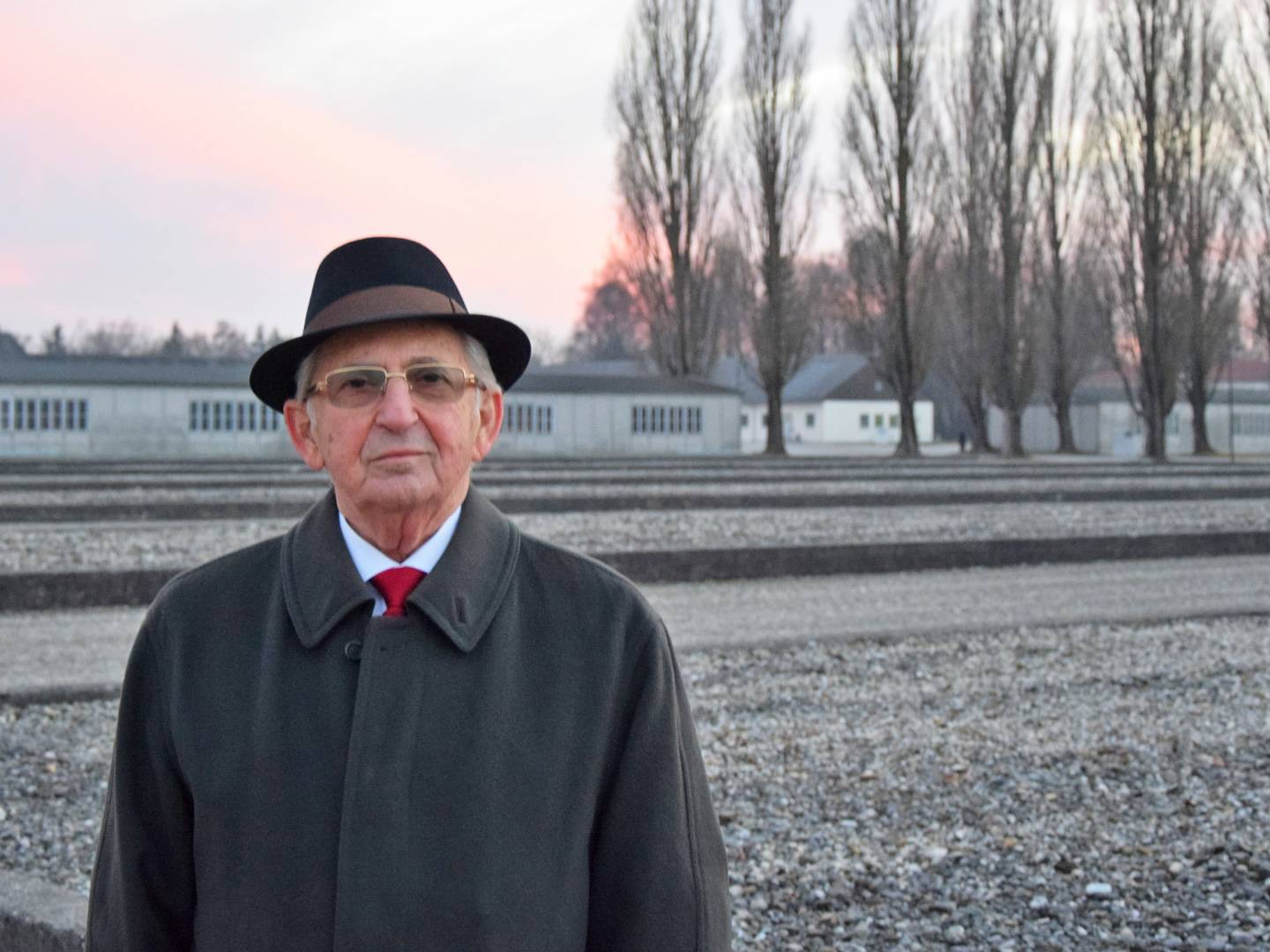Abba Naor
(born on 21 March 1928 in Kaunas) Prisoner number: 91898
We arrived in Utting, there was absolutely nothing there. It was a forested area; we had to build our own camp. We had to build huts known as earth huts and the fence so that we didn’t run away. And then we also had to build a factory for the Dykerhoff Company, which produced concrete slabs.
– Abba Naor about his arrival at Kaufering X subcamp
Abba Naor was born on March 21, 1928 as Abke Nauchowicz in Kovno, Lithuania. His was a traditional Jewish family but not very religious. In 1941, some 30,000 Jews in Kovno were summoned to relocate to the newly constructed Kauen ghetto. Living conditions were bad and when Naor’s older brother Chaim was caught trying to buy bread for the family outside the ghetto, Chaim together with 25 other young people were shot by the SS at Fort IX.
The Nazis evacuated parts of the ghetto on October 28, 1941. Seven relatives, including Naor’s grandfather, were selected and killed at Fort IX the very next day. Naor earned himself a bit of money at an illegal bakery in the ghetto. The first concerts were held at the ghetto in June 1942, and it was not longer before Naor was singing in them.
Abba Naor became a runner for the ghetto police in 1943. This provided him with valuable information about planned selections and he was able to warn several friends and family. Meanwhile, his father joined the Communist underground movement.
The ghetto was transformed into a concentration camp on September 15, 1943. In March 1944, Naor saved his little brother from the SS “Kinderaktion”. The former ghetto was evacuated four months later. Naor and his family were transported to Danzig on cargo boats on a journey lasting eight days. From there, people had to march to Stutthof concentration camp; women and men were separated from one another. On July 26th, Naor’s mother and his five year old brother were deported to Auschwitz, where they were gassed.
The day-to-day procedure at Utting was no different to anywhere else, the victimisation was prevalent. The roll call early in the morning and in the evening with victimisation, caps off and caps on, it was common practice in the camp.
– Abba Naor about everyday life in the Kaufering X subcamp
Noar was brought to Kaufering X concentration subcamp in Utting in August 1944, his father had already been transferred to Landsberg/Kaufering concentration subcamp complex. In order to find him, Naor volunteered to be transported to Kaufering I camp.
Hunger was prevalent, as were the lice. There were virtually no possibilities for keeping clean. We had to work hard, twelve hours per day with hardly any food. But we learned to organise, to adapt, especially in Utting.
– Abba Naor about the living conditions in the subcamp complex
On the flight from the US American troops, prisoners were sent on a death march to Dachau concentration camp and further south in late April 1945. At Waakirchen the SS fled on 2 May, leaving the concentration camp prisoners behind. Naor, who used this opportunity to for his own flight, encountered US American troops that same day.
Today Naor lives in Israel, and for years he has been regularly visiting Germany to hold contemporary witness discussions in school classrooms throughout the country. In 2018 he received the Bavarian Order of Merit for his remembrance work.
Today Naor lives in Israel, and for years he has been regularly visiting Germany to hold contemporary witness discussions in school classrooms throughout the country. In 2018 he received the Bavarian Order of Merit for his remembrance work.


